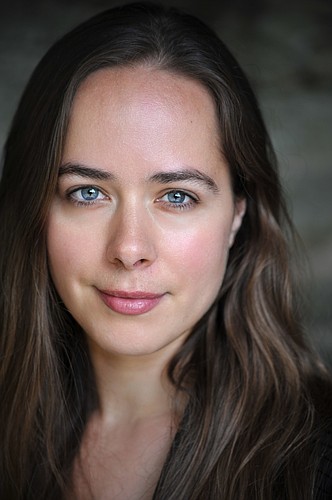- July 26, 2024
-
-
Loading

Loading

Some stories are so epic, they don’t need breathtaking prose or dazzling costumes to help tell it — just a moving piece of music and talented vocalists to perform it.
Felix Mendelssohn’s “Elijah” is one such work. The German composer’s piece will soon be performed by Key Chorale for the first time in 15 years, and conducted for the first time by Artistic Director Joseph Caulkins.
“It doesn’t come around very often,” Caulkins says. “From an artistic perspective … it’s a long, dramatic piece and it’s very compelling but also requires a full orchestra of 40 players or so, four soloists and a youth soloist.”
In short, it’s quite a feat. And takes a fleet of dedicated vocalists to prepare.
The masterwork is an oratorio, which means it’s a sacred or semisacred story told through song — much like an opera — but without a set, costumes, makeup, etc.
“The music itself is very pictorial,” Caulkins says. “You can feel the earthquake and you can hear the storm in the music, that’s what’s really interesting about this piece, how the composer can tell stories through his music.”
This concert is also part of a collaboration between the chorale and The Jewish Federation of Sarasota-Manatee; Aviva - A Campus for Senior Life; and Jewish Family & Children’s Service of the Suncoast. The outreach effort is called Project of Unity, and it’s a series of educational and cultural events to help people understand the values of different faiths and the common principles between them, all through the story of the prophet Elijah.
The project is dedicated to the late restaurateur and community leader Steve Seidensticker.
“We explored Elijah the prophet in Christianity, Islam and Judaism and had people speak about him from each perspective,” Caulkins says of the talks hosted for the project. “That was incredibly enlightening for me — there aren’t a lot of virtues that touch all major religions.”
Chorale Associate Conductor Stephen Fancher also hosted an hour-long, in-depth look at the piece from a music perspective, and Caulkins says he thoroughly enjoyed delving deeper into the work and into the story of a man who, according to Judaism and this piece of music, defended the worship of the Hebrew God over that of the Canaanite deity Baal.
Caulkins says the chorale started learning this piece in the fall, and because of a packed schedule this season, the vocalists have been rehearsing it on and off for the past several months. The four soloists (baritone Jamal Sarikoki, tenor Jason Ferrante, soprano Ruthie Nelson, and contralto Robin Bier) will come in a week before the show and rehearse with the whole group.
Bier, the lowest female voice in the piece, is no stranger to Key Chorale. She was a Core Singer in the group throughout 2006 and 2007 with her husband, Graham Bier.
The duo had just graduated from Oberlin Conservatory of Music and had moved to Sarasota to start their careers teaching at New College of Florida when they stumbled upon the chorale, which Bier credits with kickstarting her music career.
Bier is now a full-time freelance singer based in Philadelphia who travels around the U.S. performing with various choral groups. She most enjoys chamber groups and focuses primarily on baroque music, but she also sings with large organizations such as Opera Philadelphia.
“Key Chorale became our musical home right away,” she says. “Those two years felt like formative years … Key Chorale was my first regular singing job out of college and helped me strengthen a skill set that has come in handy ever since.
She adds that the opportunity to come back to Sarasota and show audiences how the chorale helped her grow is incredibly special — especially because of the nature of the piece she'll be singing.
She says "Elijah" is enjoyable to perform because of its epic nature, and she looks forward to performing it as a soloist for the first time (she previously sang in the chorus of the work in England as a graduate student at University of York).
“Whether or not you’re religious, there’s a sense that you’re delivering a message with a hefty cultural significance,” she says of the piece. “It’s a part for a real rich, poised alto voice ... that’s something I aspire to be, so it’s a great fit.”